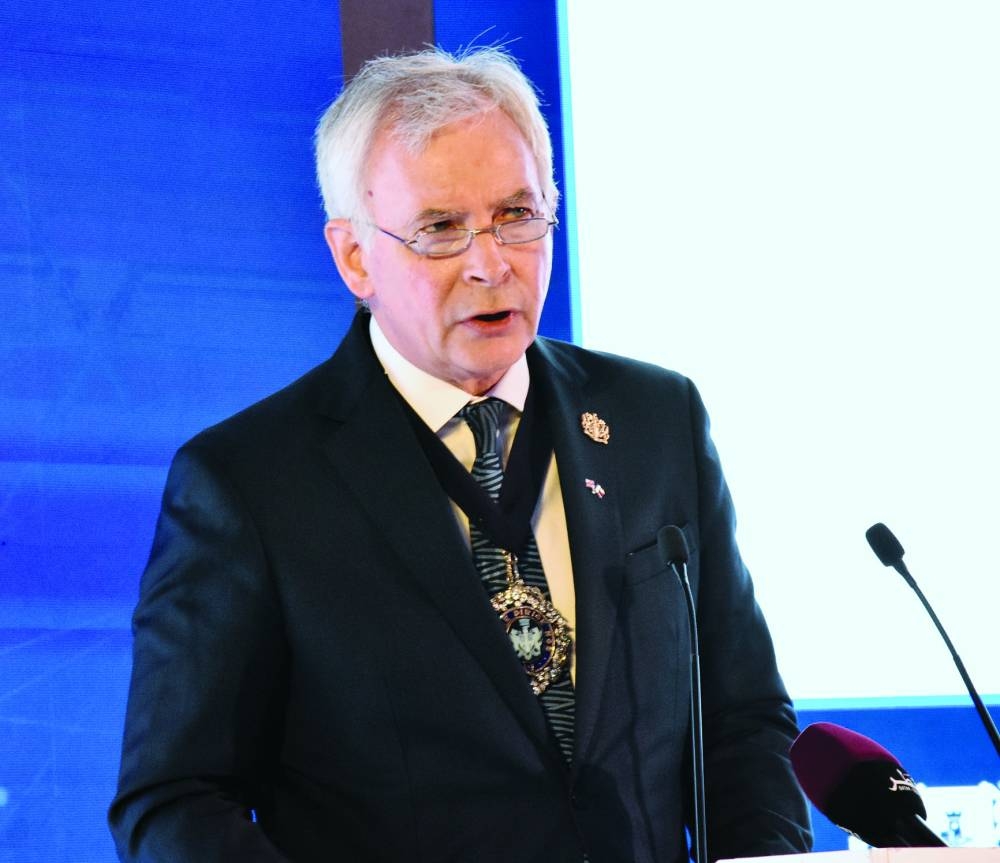London Wednesday welcomed the Qatar Financial Centre's (QFC) sustainable sukuk and bonds (SSB) framework, the first in the Gulf region; saying it will not only promote transparency but minimise greenwashing risks.
"The (London) city welcomes the QFC's development of a sustainable sukuk and bonds framework. It will promote transparency and minimise risks of greenwashing as the country pursues its National Vision 2030," Lord Mayor of City of London, Nicholas Lyons, told the 15th Middle East and North Africa (Mena) Regulatory Summit.
The QFC's SSB framework is based on the latest International Capital Markets Association (ICMA)’s Green Bond Principles (GBP), Social Bond Principles (SBP), and Sustainable Bond Guidelines (SBG).
The SSB framework integrates local requirements and features with ICMA’s globally accepted principles to create a harmonised financial market ecosystem locally, based on international standards.
London's endorsement to QFC's SSB framework came as it fully supports the harmonisation of frameworks across international boundaries, according to him.
Highlighting that Lord Mayors have visited Qatar 16 times since 2001; he said it shows the importance and depth of the relations between London and Doha and it is a two-way relationship
Elaborating on greenwashing, Lyons said: "As the world steps up to tackle climate change, we have seen proliferation of investment products marketed as green. While many of these are bona-fide, some organisations are making exaggerated claims about their products and ESG (environment, social and governance) credentials, damaging the credibility of the wider market."
Many organisations rely on ready-made ESG scoring, he added.
Greenwashing is a false, misleading or untrue action or set of claims made by an organisation about the positive impact that a company, product or service has on the environment.
Lyons said the financial centres of London and Doha have been successful owing to the strength of their regulations.
"Regulation is the cornerstone of financial stability, preventing excessive risk taking and ensuring financial institutions are able to weather economic downturns," he said.
Regulation is also the guardian of market integrity, ensuring that the market operates with fairness, transparency and credibility; promoting confidence and in turn, stimulating long term growth, according to him.
While the speed of change in some areas have been very impressive, Lyons said the world is moving even faster, new innovations like artificial intelligence, big data analytics, blockchain and distributed ledger technology prove new challenges.
With the advent of new technologies, money laundering has increasingly become a complex threat to individual businesses and wider economy, he said.
Highlighting that anti-money laundering compliance possesses a high cost to business, he said it is estimated that anti-money laundering costs to the world between 2% and 5% of its GDP (gross domestic product) annually.
"Global hubs like London and Doha should innovate to address these fast evolving issues in the anti-money laundering beneficial space," he said.

Nicholas Lyons, Lord Mayor of City of London. PICTURE: Thajudheen

